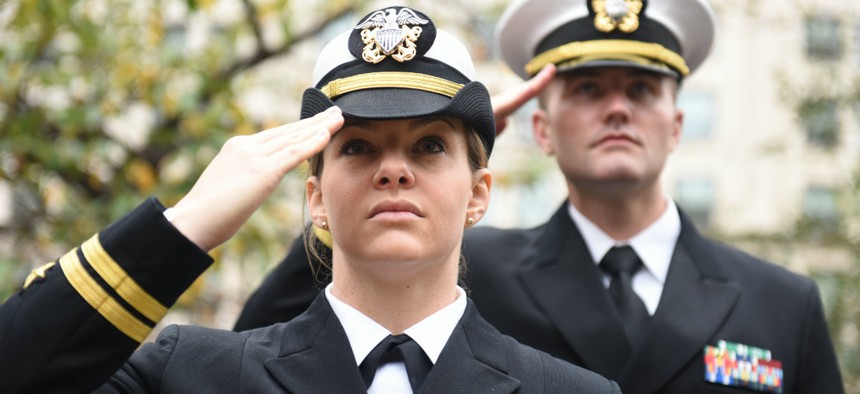States Counted More Military Votes in 2014, Aim to Improve Further


Connecting state and local government leaders
Military and overseas voting is a high priority for state and local election officials.
This article was originally published by Election Initiatives, a project of The Pew Charitable Trusts, and was written by Alexis Schuler and Keara Castaldo.
Among the many improvements in the nation’s election administration that are documented in The Pew Charitable Trusts’ latest Elections Performance Index (EPI), military and overseas voting—a high priority of state and local election officials—stands out as an area of success for many states. Between the 2010 and 2014 midterms, the proportion of military and overseas ballots that went unreturned fell from 53.1 percent to 43.3 percent, and the percentage that states rejected decreased by almost 2 points nationally, from 6.6 percent to 4.8 percent.
All uniformed service members, their spouses and voting-age dependents, and overseas civilians have the right to vote in federal elections under the Uniformed and Overseas Citizens Absentee Voting Act (UOCAVA). Also, the Military and Overseas Voter Empowerment Act mandates that absentee ballots be sent to overseas and uniformed citizens at least 45 days in advance of Election Day, requires that voting materials be sent electronically upon request, and eliminates the need for notarization. However, federal law relies on states to administer the voting process, and military personnel must vote in the state in which they are registered. The EPI tracks states’ ongoing work to meet these obligations and to ensure that active-duty military personnel serving overseas can cast their ballots and have their votes counted.
The U.S. Election Assistance Commission, together with the Federal Voting Assistance Program, supports state efforts to comply effectively with the 45-day rule. Earlier this month, the agencies hosted a joint discussion to outline the resources available for UOCAVA voters and election administrators and to respond to requests for information in advance of the Sept. 24 ballot deadline for this year’s general election.

NEXT STORY: Nurses Step In to Boost Treatment for Opioid Addiction




